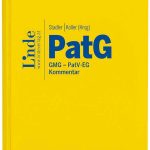Due to the borderless nature of the Internet, it is often a hard question in which country right holders may file an action against online IP infringements. Concerning online infringement of EU trade marks, the CJEUhas now created (some) clarity in AMS Neve v. Heritage – C-172/18. Trade mark holders may sue not only in the infringer’s home country but also in the country to which the infringing offers for sale and advertising are directed. This results from Art 125 (5) UMV (formerly Art 97 (5) CTMR).
Continue readingBLOG
If courts declare a hate posting illegal, they can require social networks (here Facebook) to remove not only this posting but also all posts with the same meaning, even if a different user posted them. EU law is not opposed to this. The CJEU stated this in the Case Eva Glawischnig-Piesczek v Facebook (C-18/18). Contrary to what is often reported, the CJEU held that this obligation only applies once a national court has declared the content unlawful. It does not follow from the decision that social networks are required to pre-emptively remove content before a court order is issued.
Continue readingIn a new decision (case C673/17), the CJEU clarified an essential issue for website operators. The decision, states that a pre-ticked checkbox does not constitute effective consent to the legitimate use of cookies. This also applies to the use of cookies that do not process personal data. Moreover, it must be assumed that the frequently used banners, which simply can be clicked away or are left standing while the website is are already processing data at this point in time, do not meet the necessary requirements for an effective consent either. Data processing is only allowed following a clear and active behaviour on the part of a website user, which expresses his or her consent to the data processing. From a technical point of view, it will now also be necessary to ensure that no data is in fact collected in cases where consent is refused, which is often not the case in practice at present.
Continue readingSampling, i.e. the use of individual sequences from existing pieces of music as part of a new work, is widespread. It is an essential element in hip hop and electronic music. In practice, however, very few producers seek a licence from the author or right holder of the original recording. Sampling is seen by many as its own culture, where creativity lies in the creation of new musical work consisting of a number of short, partly changed or alienated elements, so that obtaining all rights for each individual sample is often out of the question for financial or practical reasons.
Continue reading
Editors Alexander Koller and Michael Stadler have put a lot of work and heart and soul into it: The commentary published in June 2019 by Linde Verlag for the first time offers a comprehensive commentary on Austrian patent and utility model law. 34 authors, all of them practitioners of patent law from the legal and patent attorney profession, the judiciary, the university sector, the public sector and industry, bring every single paragraph to life. GFR partner Manuel Wegrostek is honoured to have made a modest contribution on the chapters of exhaustion and the preservation of evidence.
Continue readingThe Issue
If intellectual property rights are infringed, the rights holder may – as an alternative to compensation for the damages actually suffered or a reasonable royalty – request the surrender of the infringer’s profits.
The first step is to determine the “net profits” of the infringer. According to case law, variable costs for the manufacture and distribution of the infringing products may be deducted, whereas fixed costs may not. This includes administrative costs, directors’ salaries, plant rents, depreciation of fixed assets, etc, since these costs would have been incurred irrespective of the manufacture and/or distribution of the infringing products (4 Ob 182/13p, Grant’s, ecolex 2014/137).
In the decision 4 Ob 213/18d – LED-LENSER, rendered in 2019, the Austrian Supreme Court (OGH) – as far as can be seen – for the first time dealt with the question if and to which extent the infringer’s profits payable to the right holder are to be further reduced in order to appropriately consider the causal nexus between IP infringement and profits made.
Continue reading
It is time for the yearly IPDAY at WU Vienna (Vienna University of Economics and Business) again! Taking place on Monday, September 30, 2019, the event will feature a number of presentations with a focus on copyright law in the digital single market as well as an interesting block on artificial intelligence. Outstanding international speakers will provide practical insights. An overview of recent case law in the field of intellectual property in Austrian and Germany is a further incentive for practitioners. Join us and register under https://www.ip-day.at/anmeldung.php?id=6.
Under Austrian law, holders of exclusive trademark licenses used to be allowed to take legal action against infringers by virtue of the exclusive license, i.e. even if the license agreement did not expressly confer such right to the licensee [OGH 4 Ob 178/00f, BOSS-Brillen II]. Only the non-exclusive licensee required an express grant of right to bring suit in order to enforce the trademark [OGH 4 Ob 209/02f, Brühl, ÖBl 2003, 87 (Hiti)].
Since a recent amendment of Section 14 (3) of the Austrian Trademark Protection Act that took place in 2019, each licensee (i.e. also the exclusive licensee) requires the consent of the licensor in order to enforce the licensed trademark against third parties. However, the holder of an exclusive license may bring such proceedings if the proprietor of the trademark, after having been noticed by the licensee, does not himself bring infringement proceedings within an appropriate period.
Continue readingWhile there are legal remedies for victims of hate comments or other legal violations on Facebook and similar platforms, an action against the original infringer often comes too late. It is in the nature of social networks that in an instant content can be “shared” to an unlimited number of accounts. Once out there, the infringer himself is no longer in a position to get rid of his creation. Only the operator of the social network has the technical possibilities to do so. But how far does the obligation of the operator to identify and delete illegal content go?
Continue reading